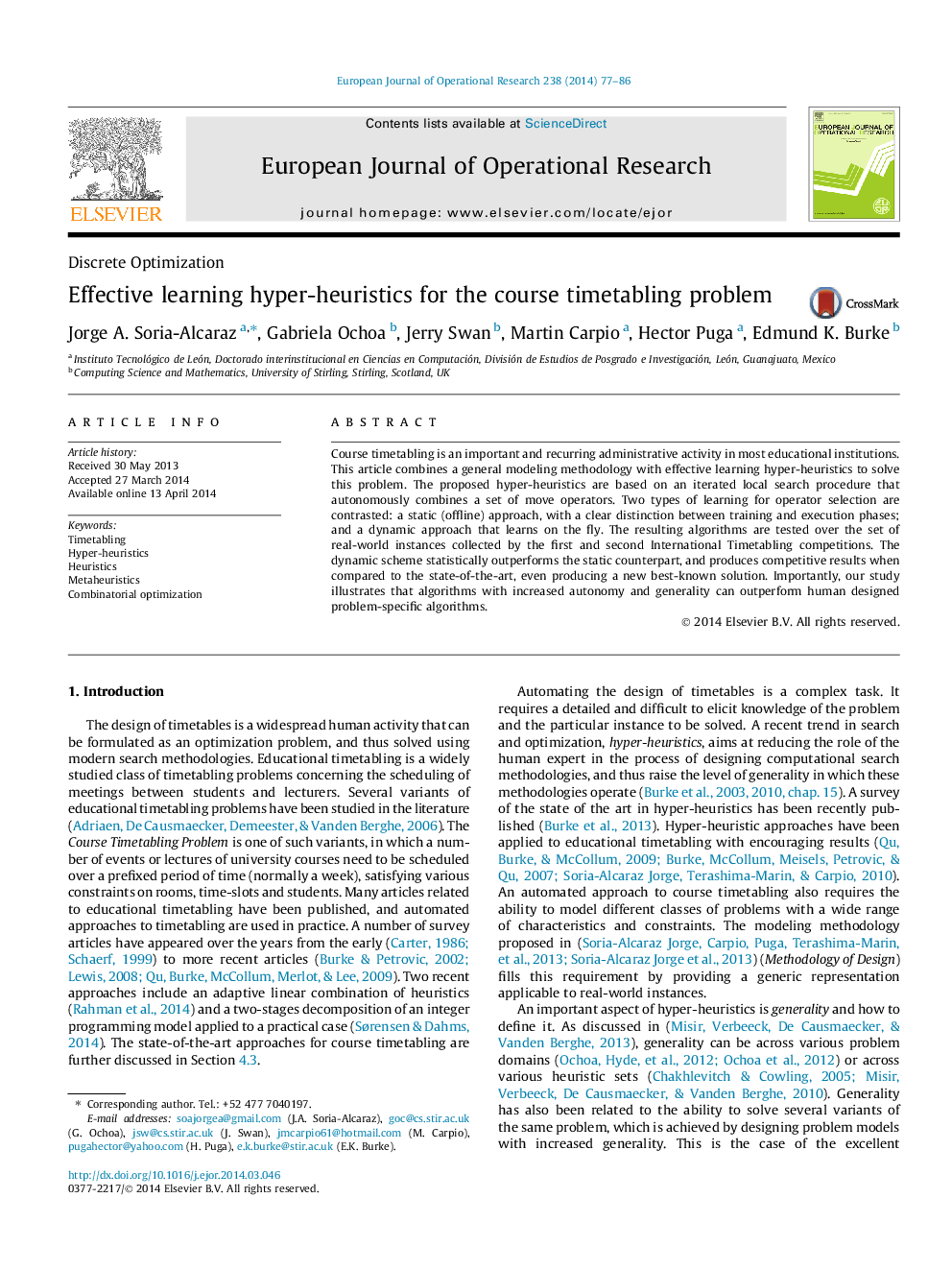| Article ID | Journal | Published Year | Pages | File Type |
|---|---|---|---|---|
| 6897244 | European Journal of Operational Research | 2014 | 10 Pages |
Abstract
Course timetabling is an important and recurring administrative activity in most educational institutions. This article combines a general modeling methodology with effective learning hyper-heuristics to solve this problem. The proposed hyper-heuristics are based on an iterated local search procedure that autonomously combines a set of move operators. Two types of learning for operator selection are contrasted: a static (offline) approach, with a clear distinction between training and execution phases; and a dynamic approach that learns on the fly. The resulting algorithms are tested over the set of real-world instances collected by the first and second International Timetabling competitions. The dynamic scheme statistically outperforms the static counterpart, and produces competitive results when compared to the state-of-the-art, even producing a new best-known solution. Importantly, our study illustrates that algorithms with increased autonomy and generality can outperform human designed problem-specific algorithms.
Related Topics
Physical Sciences and Engineering
Computer Science
Computer Science (General)
Authors
Jorge A. Soria-Alcaraz, Gabriela Ochoa, Jerry Swan, Martin Carpio, Hector Puga, Edmund K. Burke,
